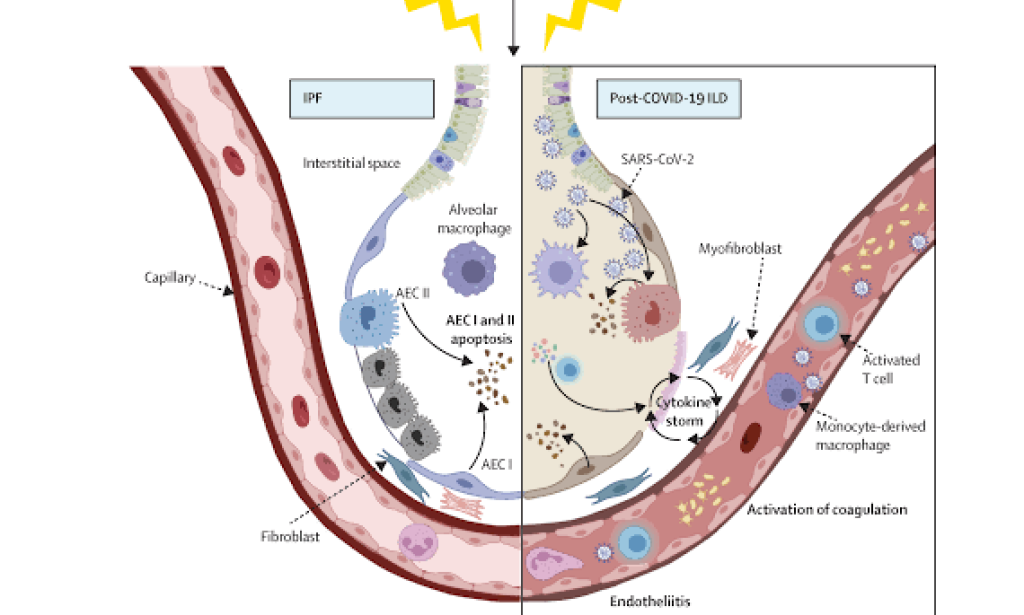Decoding the Prolonged Effects of COVID-19: A Comprehensive Clinical Study
In an era dominated by the onset of the COVID-19 pandemic, Dr. Gonzalo Labarca spearheaded a groundbreaking translational clinical study that delved into the lingering effects of the virus on individuals. The study, conducted amidst the initial stages of the pandemic, focused on assessing the sequelae between the third and fourth month, as well as one year after the acute infection. The research encompassed a broad spectrum of clinical characteristics, including comorbidities, mental health, physical well-being, fatigue, and a thorough examination of sleep patterns, considering the potential alterations in these systems.

Navigating the Clinical Landscape: Unraveling Post-COVID Sequelae
Dr. Labarca explained that the study aimed to shed light on the long-term effects of COVID-19 from a clinical perspective. The findings were somewhat surprising, revealing a significant prevalence of symptoms even after a year, including metabolic dysfunction, insulin deficiency, and the onset of diabetes over time. This insight provided a deeper understanding of the sequelae of Coronavirus beyond the acute phase.
Proteomics as a Key Player: MELISA Foundation's Vital Role
Mauricio Hernández, Chief Lab Officer of the MELISA Foundation, emphasized the pivotal role of proteomics in conducting this extensive examination. The foundation's laboratory boasts a robust system for the comprehensive analysis of serum and plasma, positioning it as one of the leading research centers in Latin America. This technological capability enabled the researchers to obtain crucial information, allowing them to characterize the long-term progression of patients from both an immunological and fundamental perspective, aligning seamlessly with clinically obtained data.
Insights from the Study: Prolonged Pulmonary Dysfunction Correlations
The study concluded that long-term pulmonary dysfunction is associated with factors such as advanced age, acute respiratory distress, hypertension, and insulin resistance. Dr. Nova-Lamperti highlighted key findings, revealing that patients sustaining lung damage exhibited a hypoxic state even up to a year post-infection. This prolonged hypoxia was accompanied by heightened systemic inflammation affecting the endothelial barrier, decreased phagocytosis response mediated by Fc receptors, and an increase in metabolic syndrome and insulin resistance.
Implications for Patient Care: A Multidisciplinary Approach
Dr. Nova-Lamperti emphasized the need for a multidisciplinary approach in treating individuals with LONG-COVID. Recognizing the persistent physiological challenges, the recommended treatment involves the collaboration of multidisciplinary teams focusing on gradual patient recovery through physical activity, mental health therapy, and nutritional intervention.

Acknowledging Research Contributions: MELISA Institute's Commitment
Dr. Elard Koch, senior researcher and Director of MELISA Institute, expressed satisfaction with the publication of this study. He underscored the importance of the institute's researchers and biotechnology center in contributing to impactful research, emphasizing the significance of such endeavors for the institution's overarching goals.
Conclusion
In conclusion, this comprehensive clinical study unravels the intricate web of post-COVID sequelae, shedding light on the prolonged effects of the virus on various aspects of health. The collaboration between researchers, clinicians, and technological advancements underscores the collective effort to understand and address the long-term implications of COVID-19, emphasizing the importance of a holistic approach to patient care.



You must be logged in to post a comment.